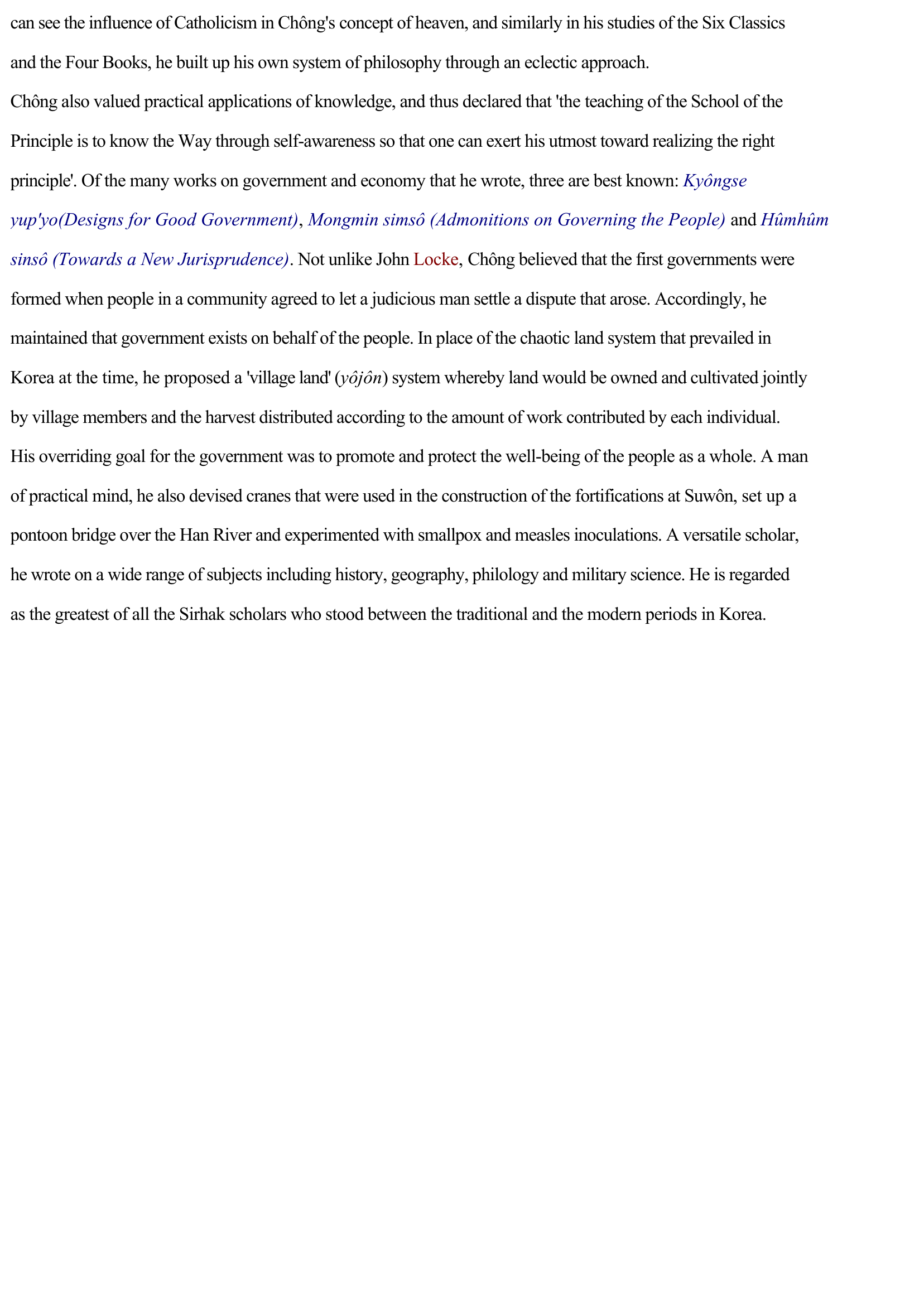Chông Yagyong (Tasan)
Publié le 22/02/2012

Extrait du document
«
can see the influence of Catholicism in Chông's concept of heaven, and similarly in his studies of the Six Classics
and the Four Books, he built up his own system of philosophy through an eclectic approach.
Chông also valued practical applications of knowledge, and thus declared that 'the teaching of the School of the
Principle is to know the Way through self-awareness so that one can exert his utmost toward realizing the right
principle' .
Of the many works on government and economy that he wrote, three are best known: Kyôngse
yup'yo (Designs for Good Government) , Mongmin simsô (Admonitions on Governing the People) and Hûmhûm
sinsô (Towards a New Jurisprudence) .
Not unlike John Locke , Chông believed that the first governments were
formed when people in a community agreed to let a judicious man settle a dispute that arose.
Accordingly, he
maintained that government exists on behalf of the people.
In place of the chaotic land system that prevailed in
Korea at the time, he proposed a 'village land' (yôjôn ) system whereby land would be owned and cultivated jointly
by village members and the harvest distributed according to the amount of work contributed by each individual.
His overriding goal for the government was to promote and protect the well-being of the people as a whole.
A man
of practical mind, he also devised cranes that were used in the construction of the fortifications at Suwôn , set up a
pontoon bridge over the Han River and experimented with smallpox and measles inoculations.
A versatile scholar,
he wrote on a wide range of subjects including history, geography, philology and military science.
He is regarded
as the greatest of all the Sirhak scholars who stood between the traditional and the modern periods in Korea..
»
↓↓↓ APERÇU DU DOCUMENT ↓↓↓

































